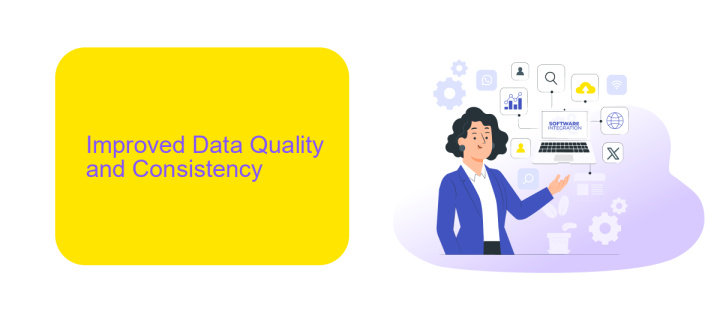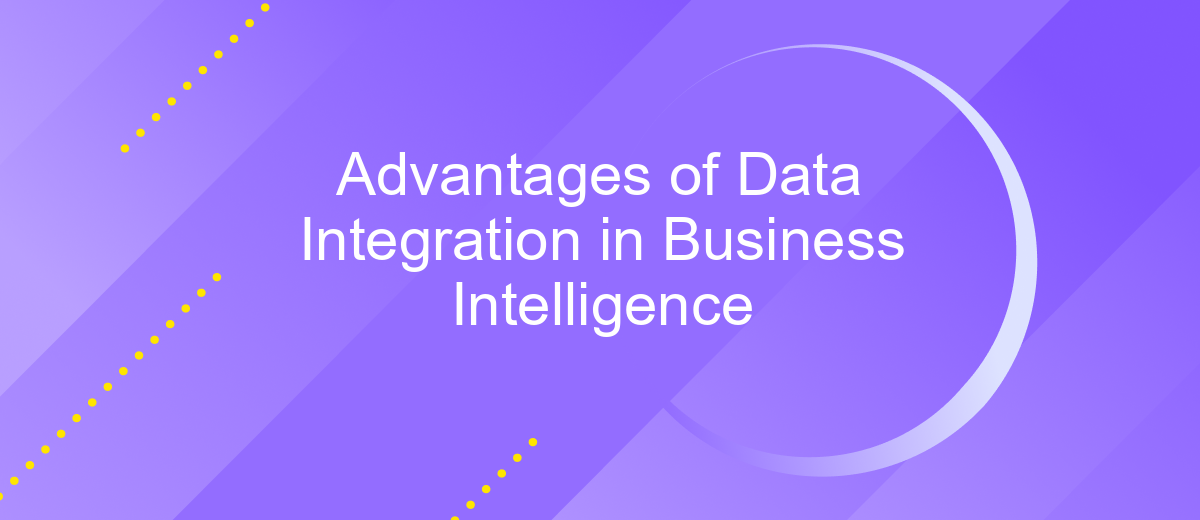Advantages of Data Integration in Business Intelligence
Data integration plays a pivotal role in modern business intelligence, enabling organizations to consolidate diverse data sources into a unified view. This seamless amalgamation enhances decision-making, improves operational efficiency, and fosters a data-driven culture. By leveraging integrated data, businesses can uncover valuable insights, streamline processes, and maintain a competitive edge in an increasingly data-centric world.
Introduction
In the rapidly evolving landscape of business intelligence, data integration has emerged as a critical component for organizations seeking to harness the full potential of their data. By combining data from various sources into a unified view, businesses can gain deeper insights, improve decision-making, and enhance operational efficiency.
- Improved data accuracy and consistency
- Enhanced decision-making capabilities
- Streamlined operations and processes
- Increased business agility
- Better customer insights and personalization
One of the key tools that facilitate seamless data integration is ApiX-Drive. This service allows businesses to automate data transfer between various platforms, ensuring that information is up-to-date and accessible in real-time. By leveraging such tools, organizations can focus more on strategic initiatives rather than getting bogged down by technical challenges, thereby driving growth and innovation.
Improved Data Quality and Consistency

Integrating data from various sources significantly improves data quality and consistency within an organization. By consolidating data into a single, unified system, businesses can eliminate redundancies and discrepancies that often arise from maintaining multiple, isolated data sources. This integration ensures that all departments are accessing the same accurate and up-to-date information, leading to more reliable and coherent data analysis. As a result, decision-makers can trust the data they are using to make strategic business decisions, ultimately enhancing operational efficiency and effectiveness.
Moreover, using specialized integration tools like ApiX-Drive can further streamline this process. ApiX-Drive allows businesses to automate data integration from various platforms, ensuring that data is consistently updated and synchronized. This automation reduces the risk of human error, which is a common issue in manual data handling processes. By leveraging such tools, organizations can maintain high data quality and consistency, enabling them to derive more meaningful insights and drive better business outcomes.
Enhanced Data Analysis and Reporting

Enhanced data analysis and reporting are crucial benefits of data integration in business intelligence. By consolidating data from multiple sources, businesses gain a holistic view of their operations, enabling more accurate and insightful analysis. This comprehensive approach allows decision-makers to identify trends, uncover hidden patterns, and make data-driven decisions with greater confidence.
- Centralized Data Repository: Integrating data from various sources into a single repository ensures that all relevant information is accessible in one place, reducing the time spent on data collection and preparation.
- Improved Data Quality: Data integration helps in cleansing and standardizing data, which enhances the accuracy and reliability of the analysis.
- Real-Time Insights: With integrated data, businesses can generate real-time reports and dashboards, providing up-to-date insights for timely decision-making.
- Automated Reporting: Tools like ApiX-Drive facilitate seamless data integration and automation of reporting processes, reducing manual effort and the likelihood of errors.
By leveraging these advantages, businesses can enhance their analytical capabilities and reporting efficiency. The use of integration services such as ApiX-Drive further simplifies the process, allowing companies to focus on deriving actionable insights rather than managing data complexities. As a result, organizations can stay competitive and responsive in a rapidly evolving market.
Increased Business Intelligence

One of the most significant advantages of data integration in business intelligence is the enhancement of decision-making capabilities. By consolidating data from various sources, businesses can gain a more comprehensive view of their operations, leading to more informed and accurate decisions. This holistic approach allows companies to identify trends, uncover insights, and respond to market changes more effectively.
Furthermore, integrated data systems streamline the process of data analysis, reducing the time and effort required to gather and interpret information. This efficiency not only saves resources but also accelerates the speed at which businesses can act on their insights. By having real-time access to integrated data, companies can maintain a competitive edge in their industry.
- Enhanced decision-making capabilities
- Comprehensive view of operations
- Efficient data analysis
- Real-time access to information
- Competitive edge in the market
Tools like ApiX-Drive facilitate seamless data integration by automating the process of connecting various data sources. This service simplifies the setup and maintenance of data flows, ensuring that businesses can focus on leveraging their integrated data for strategic purposes. With solutions like ApiX-Drive, companies can enhance their business intelligence efforts without the need for extensive technical expertise.


Improved Decision Making
Data integration significantly enhances decision-making processes within business intelligence by providing a unified view of data from multiple sources. When data from various departments and systems is consolidated, it becomes easier for decision-makers to identify trends, uncover insights, and make informed choices. This holistic perspective reduces the risk of errors and ensures that decisions are based on accurate, up-to-date information, ultimately leading to more effective strategies and better business outcomes.
Furthermore, leveraging tools like ApiX-Drive can streamline the integration process, allowing businesses to connect disparate data sources effortlessly. ApiX-Drive enables automated data transfers between applications, ensuring that all relevant information is available in real-time. This not only saves time but also reduces the complexity associated with manual data handling. By utilizing such services, organizations can focus on analyzing data rather than managing it, thereby accelerating the decision-making process and enhancing overall efficiency.
FAQ
What is data integration in the context of business intelligence?
How does data integration improve decision-making in businesses?
What are the key benefits of data integration for business intelligence?
How can businesses implement data integration effectively?
What challenges might businesses face with data integration, and how can they be addressed?
Time is the most valuable resource for business today. Almost half of it is wasted on routine tasks. Your employees are constantly forced to perform monotonous tasks that are difficult to classify as important and specialized. You can leave everything as it is by hiring additional employees, or you can automate most of the business processes using the ApiX-Drive online connector to get rid of unnecessary time and money expenses once and for all. The choice is yours!

